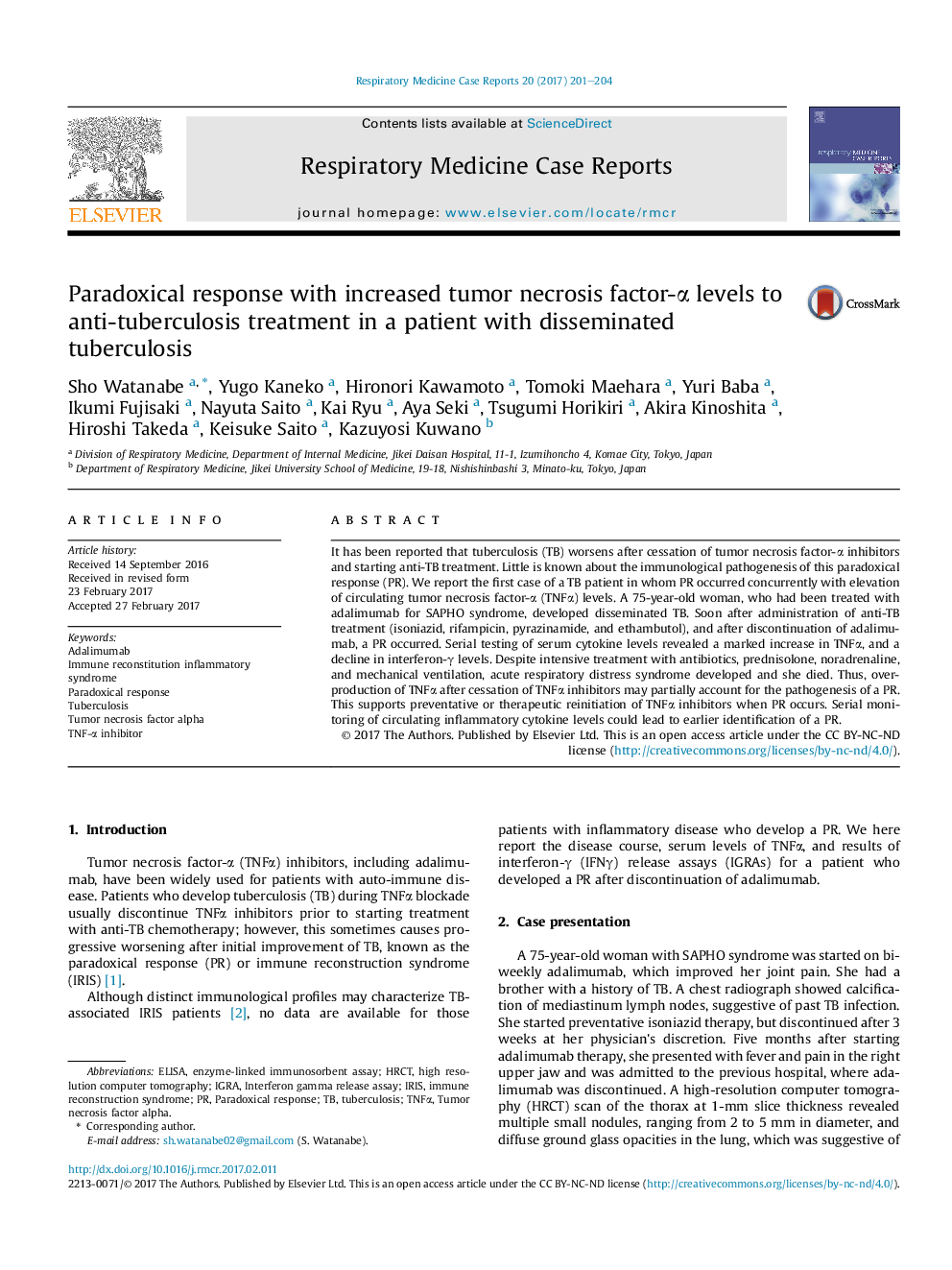| Article ID | Journal | Published Year | Pages | File Type |
|---|---|---|---|---|
| 5725243 | Respiratory Medicine Case Reports | 2017 | 4 Pages |
It has been reported that tuberculosis (TB) worsens after cessation of tumor necrosis factor-α inhibitors and starting anti-TB treatment. Little is known about the immunological pathogenesis of this paradoxical response (PR). We report the first case of a TB patient in whom PR occurred concurrently with elevation of circulating tumor necrosis factor-α (TNFα) levels. A 75-year-old woman, who had been treated with adalimumab for SAPHO syndrome, developed disseminated TB. Soon after administration of anti-TB treatment (isoniazid, rifampicin, pyrazinamide, and ethambutol), and after discontinuation of adalimumab, a PR occurred. Serial testing of serum cytokine levels revealed a marked increase in TNFα, and a decline in interferon-γ levels. Despite intensive treatment with antibiotics, prednisolone, noradrenaline, and mechanical ventilation, acute respiratory distress syndrome developed and she died. Thus, overproduction of TNFα after cessation of TNFα inhibitors may partially account for the pathogenesis of a PR. This supports preventative or therapeutic reinitiation of TNFα inhibitors when PR occurs. Serial monitoring of circulating inflammatory cytokine levels could lead to earlier identification of a PR.
